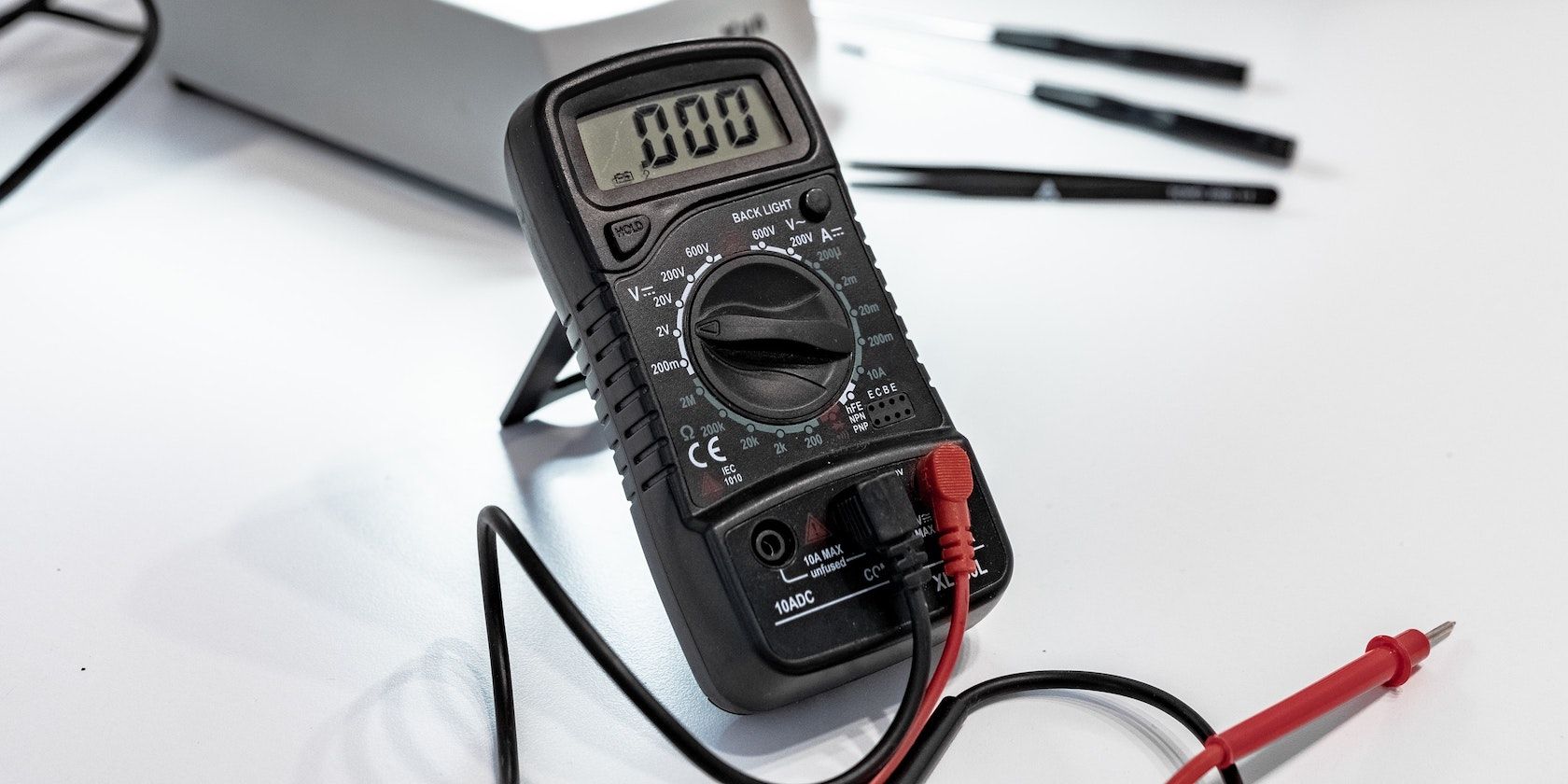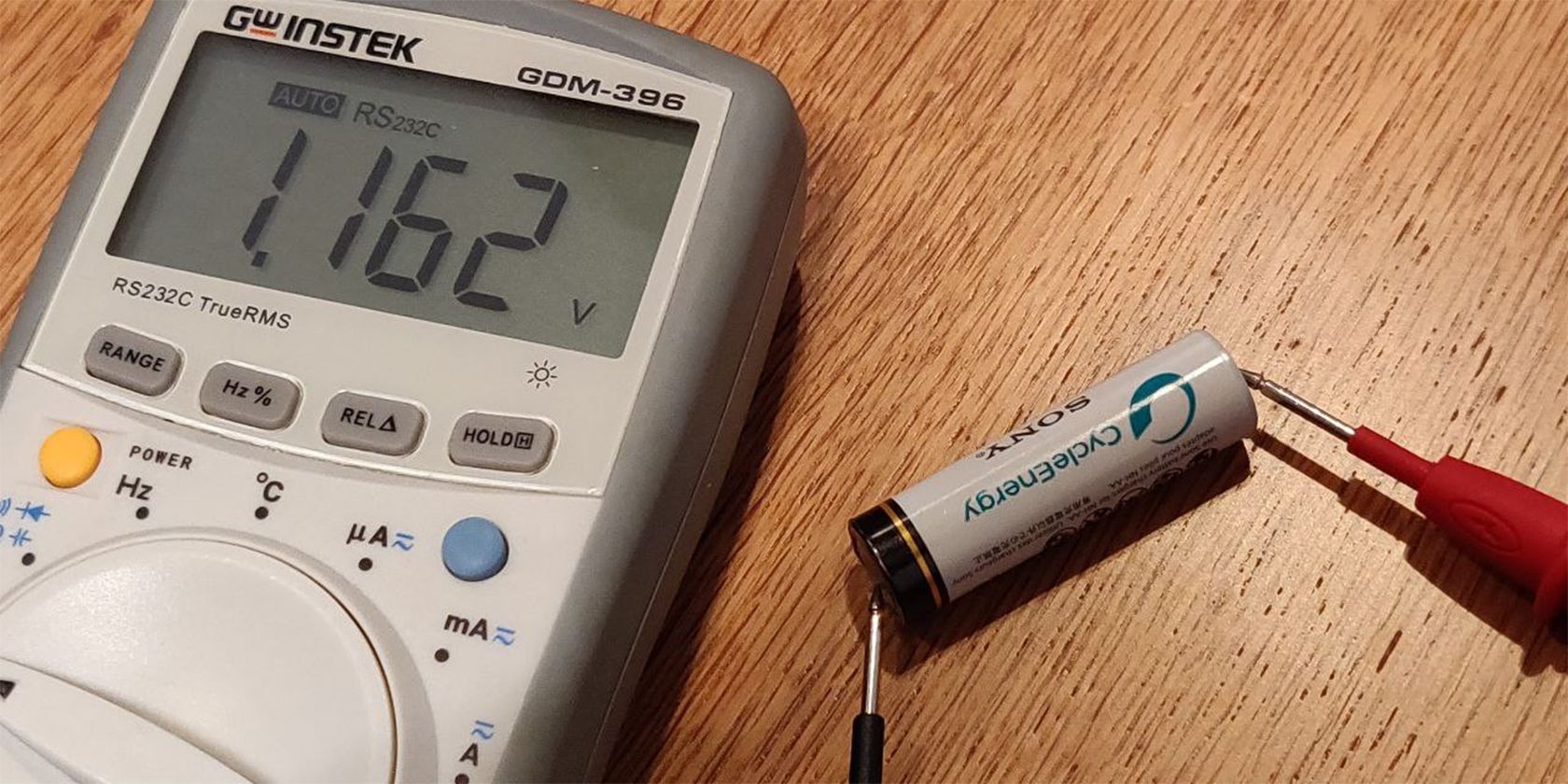A multimeter is a must-have gadget for every DIYer, technician, and engineer. When you opt to buy a multimeter, you will have to consider different factors related to its features, quality, safety, and performance to choose the right product.
Whether you intend to buy the multimeter for basic or professional use, we will cover different aspects that one should consider before buying a multimeter. Let's explore them one by one.
1. What Do You Need a Multimeter for?
Before buying a multimeter, the first question you need to ask yourself is: why do you even need one? The considerations will be different based on whether it's for a hobby project, home testing, or professional use.
Not knowing your needs properly may result in you buying a product that lacks essential features or spending extra money for features you don't even need.
Thus, defining your requirements will help you narrow down the choices and prevent spending extra money on an expensive device. After deciding on your needs, you need to choose between analog and digital multimeters, the two most common types of multimeters.
2. Deciding Between an Analog and Digital Multimeter
The two types of multimeters differ primarily in how they display their output. Analog multimeters measure value on an analog scale using a needle; digital ones show the exact value in digital form on the display.
Analog multimeters are cheaper, while digital ones are relatively expensive, but the latter are more accurate. In terms of usage, digital ones are easier to use, while analog ones can make it a bit difficult for new users.
Although digital multimeters are superseding analog ones over time, it depends on your preference and needs in choosing which one to go for.
Once you have decided between analog and digital, the next step is to evaluate the multimeter's features and measurements.
3. What Your Multimeter Can Measure?
A multimeter's few essential functions include measuring voltage, current, resistance, and checking continuity. It is rare to find a multimeter without any of these four features, though the accuracy and reliability may vary. Make sure the product you choose has a good measurement range for both voltage and current.
Most advanced digital multimeters can also measure temperature, frequency, capacitance, and inductance. Diode testing is another handy feature to consider. Using these features helps you do more advanced work, such as inspecting home appliances, HVAC testing, and electronic crossovers. They're worth considering if your needs are this advanced.
Moreover, a multimeter with a backlit LCD, which digital multimeters usually have, makes it easy to operate in dark areas. Other than a backlit display, carefully check the resolution of the digital multimeter you are going to buy.
Resolution refers to the number of digits on the digital display showing the total signal strength. The higher the resolution, the more accurate the measurements will be.
Note that most of these features are exclusive to digital multimeters, and if you are opting to buy an analog device, you won't have to worry about them much.
4. Manual vs. Auto-Ranging Multimeters
Auto-ranging multimeters are exactly what they sound like. Operating them is as simple as turning on the multimeter, connecting test leads to the device, and letting the multimeter handle the range itself. These are beginner-friendly units.
On the other hand, manual ranging requires you to set the range yourself via a dial while measuring. Although these results are more reliable, they need some hands-on experience, which only professionals possess.
You should go for an auto-ranging multimeter unless you are a professional with very specific needs requiring high precision. However, there are multimeters in the market that offer both types of flexibility, so if you can find a device like that, it'd be wise to get it.
5. Keep an Eye on Your Budget
While making a purchase, you should also carefully determine how much you should spend on a multimeter based on its features and the level of use you anticipate, such as at home or professionally in the workplace. The more professional or advanced a multimeter is, the more expensive it will be.
Price ranges for multimeters can vary from less than $50 up to over $1000, depending on the product. Analyze the specifications of different devices and choose one that meets your needs without spending too much.
6. Check the Multimeter's Durability
The durability of a product is equally important. Therefore, pick a device that can easily withstand shocks, bumps, and accidental falls. To ensure your multimeter lasts a long time, ensure that its outer casing is hard enough to withstand workplace wear and tear.
If the device is durable, the circuit won't become exposed with the outer casing breaking after a few falls, making the device unsafe to operate. Thus, one cannot stress enough the importance of durability.
Additionally, you need to strike the right balance between price and durability. Generally, higher-quality multimeters, which are more durable, are preferred for industrial or professional use, but they tend to be very expensive. Although inexpensive multimeters don't last long in an industrial environment, they may be an excellent choice for home testers and DIYers.
In short, regardless of your use, it is worth it to go for a quality meter, even if you have to wait for a sale or a price reduction.
7. Knowing the Necessary Safety Protocols
Several safety protocols have been defined by the International Electrotechnical Communication (IEC) for multimeters, so it's best to keep those in mind and go for a multimeter that meets each of them.
First, you need to ensure that the multimeter you are buying has an insulated protective case, so is therefore safe to use without any risk of getting an electric shock.
For professional use, such as testing the electricity of a household system, buying one with a quality test reduces the risk of electrocution. The safety-designed test leads have shrouded terminals and finger guards to ensure maximum user safety.
Furthermore, ensure that the multimeter you are buying is approved by independent safety organizations such as UL and CSA.
A multimeter's CAT category is also essential to check, which is based on the maximum voltage it can measure. For instance, if you need to work with devices with voltage no more than 400V or 500V, opting for CAT III devices, which usually measure from 600V to 1000V, is ideal.
When choosing a multimeter, you should opt for a product that has high-energy fuses to ensure a risk-free working experience. If the fuse is replaceable, it only needs to be replaced with a current surge, without damaging the multimeter.
Buy the Multimeter of Your Choice
To make an intelligent purchase, you must clearly define your needs first. This article should help you decide what to consider before buying a multimeter and smartly narrow down your choices. Still unsure? Asking for technical assistance while making your purchase is definitely an option.
Are you planning to purchase a multimeter for the first time? If yes, then know the basics of how it works, what its applications are, and what safety precautions must be taken while using it to avoid catastrophe.




